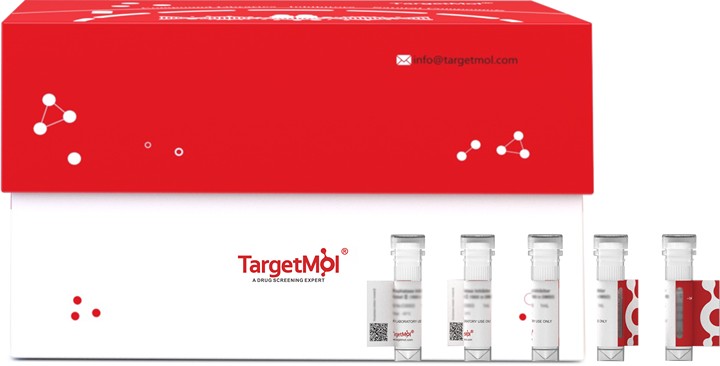Shopping Cart
- Remove All
 Your shopping cart is currently empty
Your shopping cart is currently empty

Alpha-synuclein Protein, Human, Recombinant (Avi & His), Biotinylated is expressed in E. coli. The accession number is P37840-1.

| Pack Size | Price | Availability | Quantity |
|---|---|---|---|
| 20 μg | $588 | Backorder | |
| 100 μg | $1,380 | Backorder |
| Biological Activity | Activity testing is in progress. It is theoretically active, but we cannot guarantee it. If you require protein activity, we recommend choosing the eukaryotic expression version first. |
| Description | Alpha-synuclein Protein, Human, Recombinant (Avi & His), Biotinylated is expressed in E. coli. The accession number is P37840-1. |
| Species | Human |
| Expression System | E. coli |
| Tag | C-His-Avi |
| Accession Number | P37840-1 |
| Synonyms | PD1,PARK4,PARK1,NACP |
| Construction | A DNA sequence encoding the Human SNCA (P37840-1) (Met1-Ala140) was expressed with a C-terminal polyhistidine tag followed by an AVI tag. The expressed protein was biotinylated in vivo by the Biotin-Protein ligase (BirA enzyme) which is co-expressed. |
| Protein Purity | ≥ 90% as determined by SDS-PAGE. |
| Molecular Weight | 17.1 kDa (predicted) |
| Endotoxin | < 1.0 EU per μg protein as determined by the LAL method. |
| Formulation | Lyophilized from sterile PBS, pH 7.4. Please contact us for any concerns or special requirements. Normally 5 % - 8 % trehalose, mannitol and 0.01% Tween 80 are added as protectants before lyophilization. Please refer to the specific buffer information in the hardcopy of datasheet or the lot-specific COA. |
| Reconstitution | Please refer to the lot-specific COA. |
| Stability & Storage | It is recommended to store recombinant proteins at -20°C to -80°C for future use. Lyophilized powders can be stably stored for over 12 months, while liquid products can be stored for 6-12 months at -80°C. For reconstituted protein solutions, the solution can be stored at -20°C to -80°C for at least 3 months. Please avoid multiple freeze-thaw cycles and store products in aliquots. |
| Shipping | In general, Lyophilized powders are shipping with blue ice. |
| Research Background | Alpha-Synuclein (alpha-Syn), also known as NACP or SNCA, exists as at least two structural isoforms: one is helix-rich, membrane-bound form that both the N- and C-terminal regions of alpha-synuclein are tightly associated with membranes and the other is disordered, cytosolic form. Synuclein is found predominantly in the presynaptic termini, in both free or membrane-bound forms. SNCA is extensively localized in nucleus of neurons. It has been shown that alpha-Synuclein was highly expressed in the mitochondria in olfactory bulb, hippocampus, striatum, and thalamus, where the cytosolic alpha-Synuclein was also rich. Normally the unstructured soluble type of alpha-synuclein can aggregate to form insoluble fibrils in pathological conditions characterized by Lewy bodies, such as Parkinson's disease, dementia with Lewy bodies and multiple system atrophy. SNCA abnormality and mitochondrial deficiency are two major changes in the brain of patients with Parkinson's disease (PD). Besides, alpha-synuclein is an abundant component of Lewy bodies in sporadic Parkinson's disease and diffuse Lewy body disease. |

Copyright © 2015-2025 TargetMol Chemicals Inc. All Rights Reserved.